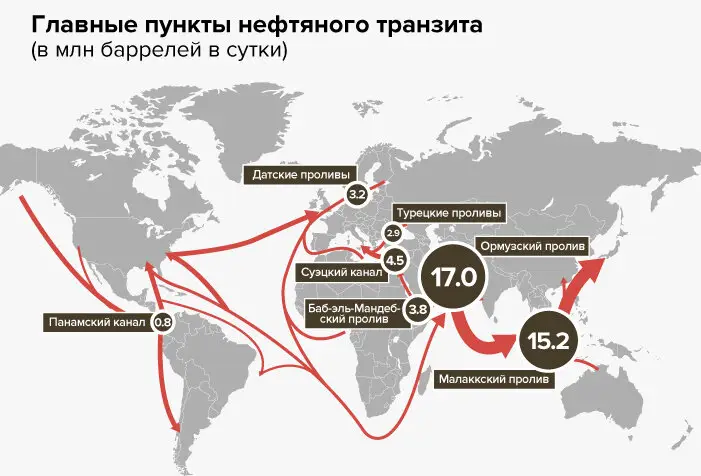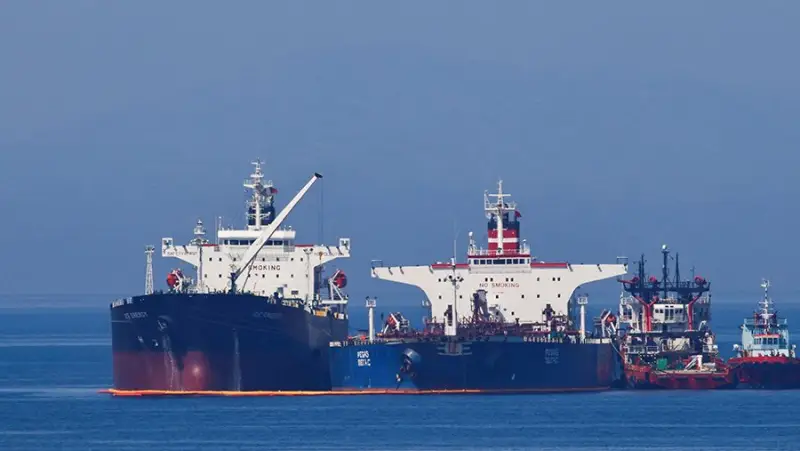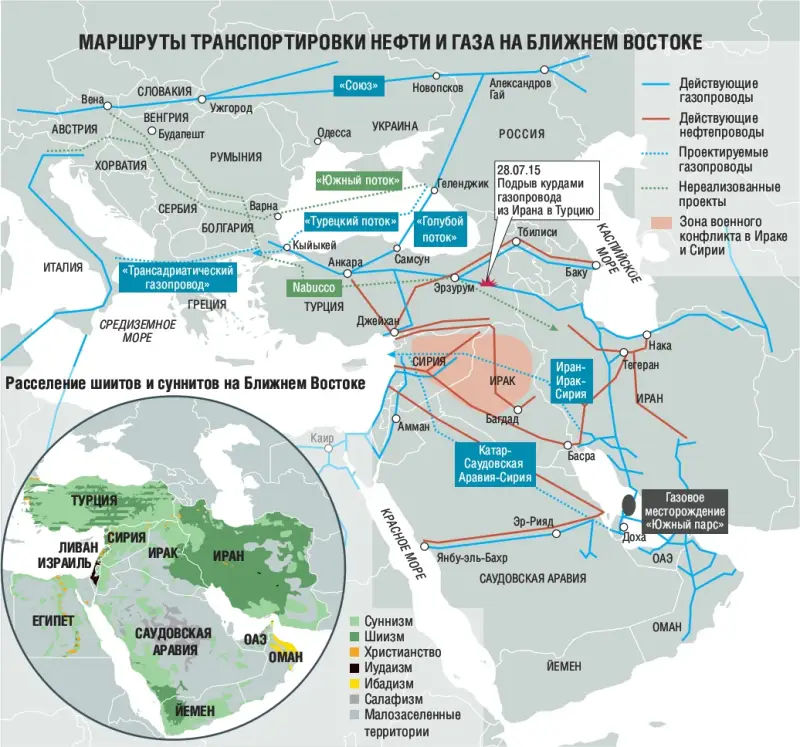The most terrible thing in the world is the Red Sea. Or the Persian Gulf

Where it's narrow, that's where it breaks
Since January 2024, a significant portion of commercial maritime flights have ceased to use the Suez Canal and the Red Sea for communication on Asia-Europe routes. The Persian Gulf - Rotterdam, Kolkata - Rotterdam and Guangzhou - Rotterdam routes, which are strategically important for the global economy, are also closed.
Now most of the ships take a longer route: through the Cape of Good Hope in South Africa. Thus, everything returned to the state of more than a hundred years ago. It existed before the Entente countries built the Suez Canal - now it is believed that for strategic purposes on the eve of the First World War.
But today it is quite obvious who became the beneficiaries of the Houthis’ attacks on ships suspected of collaborating with Israel and the collective West. Oddly enough, it is precisely the European and American shipowners who now have more income, even taking into account the decrease in business margins.
Income from sea transit is growing, as if by itself - due to a longer route and a general increase in freight rates around the world.
The shipowners can also include oil tycoons, who, in addition to participating in the capital of freight companies, have other interests. They benefit from such price increases, and throughout the entire oil market, and not just in the case of the Persian Gulf.
What will happen to their income if the crisis is resolved and what will they choose: the original Christian ideal of world peace or the later notorious Protestant ethic, according to which money has no smell?
Pandemic and... then
During 2022 and the first half of 2023, the sea freight market, both container and tanker, recovered and showed good growth prospects. This was due to the market rebounding following the lifting of restrictions during the Covid-19 pandemic.
However, later the growing global inflation rate and unclear geopolitical prospects began to put pressure on the sea freight market. In the West, dissatisfaction and pessimism have clearly emerged due to the prolongation of the Ukrainian conflict, in connection with which more and more new expenditure items are appearing in state budgets to help Ukraine with weapons.
Well, the conflict in the Gaza Strip, whose rebels were supported by those same pro-Iranian Yemeni Houthis, completely ruined all prospects. In November, when Houthi attacks on civilian ships began, carriers and shipowners were in shock. And this despite the fact that none of the civilian sailors were seriously injured during the entire period.

In reality, there were only three “two hundredths” from the crew of the American destroyer escorting a commercial ship along the Red Sea. The Houthis' own losses as a result of retaliatory attacks on the convoys were much greater. But both individual sailors and entire ship crews were afraid to sail the Red Sea.
The Houthis are firing rockets at the narrowing section of the sea between the eastern areas of Jebel Ali - Dammam - Jubail and Jeddah. Even if you go close to the western, African coast, the entire water area from the Arabian Peninsula is perfectly controlled even without the use of expensive advanced technologies, and even more so, it is shot through.
Change for the worse?
The current situation led, for about three months from November last year, to the fact that ship-owning companies and transportation operators began to incur losses even greater than those observed several months earlier against an unfavorable macroeconomic background.
In the end, the nerves of the management of Maersk could not stand it, which, after another attack on its ship, declared a moratorium on the passage of ships through the Suez Canal and the Red Sea. The ships sailed through the Cape of Good Hope at the southern tip of Africa, to South Africa. Before the construction of the Suez Canal at the beginning of the 20th century, ships sailed this way.
A chain reaction immediately followed: a number of large shipping companies also launched voyages through South Africa; in addition to the banal fear of damage from Houthi attacks, commercial instinct apparently also played a role that it would be possible to obtain larger orders by increasing the time and length of the journey. True, the consequences on commodity markets hardly pleased shipowners.
Ships are known to use cracked petroleum products as fuel. And oil just logically soared in price to new local highs. After all, if the route from South and East Asia to Europe by sea due to the need to go around South Africa has increased by about one and a half times, then the route from the oil-bearing regions of the Persian Gulf to Europe, bypassing the Suez Canal, has increased by at least three times.
At the same time, the Yemen crisis has raised the price not only of Middle Eastern oil, but also of varieties whose transportation routes have not changed, but which, in a number of characteristics, can replace their Middle Eastern counterparts: for example, Norwegian and Azerbaijani oil.

Who benefits?
Further global consequences generally brought the world economy to the brink of changing the established order in the logistics industry. The freight rate on the Asia-Europe route has doubled in price. But this is not the only basic route along which sea cargo transportation is carried out; there are eleven of them in total.
But rates for transportation between Europe and the United States have increased by about one and a half times. This is no wonder: tariffs in the conditions of globalism are dictated not by common sense and not by the balance of supply and demand, but by stock market trends: if they have increased somewhere, it means that we will also increase, what difference does it make whether it is justified or not. The war will write everything off...
Therefore, a logical question arises: who benefits from peace in the Middle East, and who would like to feed themselves from the war?
Everything that is happening now on the stock exchanges of companies that are to one degree or another affected by the Yemen crisis is closely connected with geopolitics.
For example, a number of companies made deals with the Houthis that they would let them through without shelling in exchange for an obligation not to enter Israeli ports. Immediately, as if in response to financial market manipulators, the shares of these companies on the exchanges were collapsed by short sales.
The most plausible hypothesis can be put forward that the government agencies of a number of countries were behind these sales, who wanted to punish the “collaborators” in this way. But the fact that the shares of shipping companies went up after they sent ships through the Cape of Good Hope is also quite logical: investors have not yet seen the results of this action, but they already want to play on the news.
The situation affected not only the Gulf countries and Western states directly involved in the process. A difficult situation is observed with Indian carriers, who, apparently, will also be forced to raise freight rates and send ships through South Africa.
South Africa itself has already made decent profits through logistics and new supply chain schemes. Therefore, in the situation there are clearly parties to large transnational business who clearly benefit from everything continuing exactly as it is.
Information